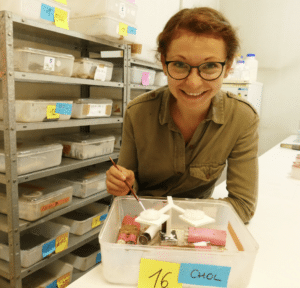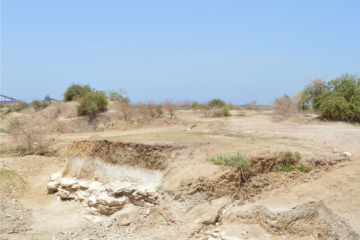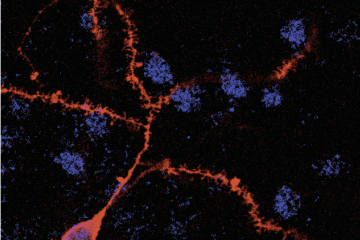
Enikő CSATA,
Former Fyssen 2017,
Abstract
As for all living organisms, the nutritional needs of ants change over time in response to varying environmental conditions
and demands for growth, health, and reproduction. Solitary individuals regulate their nutritional intake to maintain
an appropriate balance of nutrients by selectively choosing the quality and quantity of food that meet their nutritional
requirements. For social organisms, such as ants, food collection for the entire colony relies on a few individuals whose
nutritional requirements may be very different from those of other members of their colony. Recent studies have used an
integrative framework, the “geometric framework”, to better understand how living organisms regulate macronutrient
intake to defend a specific nutrient “intake target”. In this review, we first reveal how the geometric framework has been
used to deepen our understanding of ant communal nutrition. Second, we describe how this framework might be used
to also understand the nutritional strategies used by ants facing infection challenges. Lastly, we conclude with a brief
discussion of the promising techniques that could be used in the future to improve our understanding of communal
nutrition in ants.
Key words: Ants, nutrition, geometric framework, food intake, parasite, review.
 My name is Enikő Csata, and I’m currently a postdoc in Audrey Dussutour’s lab at Université Toulouse III Paul Sabatier, working on how social insects, such as ants maintain multiple nutrient supplies at both a collective and an individual level in response to changes in the nutritional composition of available foods and fungal infection. I have had a deep interest in myrmecology since my undergraduate study. During my first years of university I explored ant-aphid relationships. During my MSc and PhD studies I became interested in host-parasite interactions and how they are shaped by life histories of the ant host, the parasite and the environment in which these interactions take place. I did my university degrees in Romania, at Babeș-Bolyai University, Hungarian Department of Biology and Ecology, under supervision of dr. Bálint Markó.
My name is Enikő Csata, and I’m currently a postdoc in Audrey Dussutour’s lab at Université Toulouse III Paul Sabatier, working on how social insects, such as ants maintain multiple nutrient supplies at both a collective and an individual level in response to changes in the nutritional composition of available foods and fungal infection. I have had a deep interest in myrmecology since my undergraduate study. During my first years of university I explored ant-aphid relationships. During my MSc and PhD studies I became interested in host-parasite interactions and how they are shaped by life histories of the ant host, the parasite and the environment in which these interactions take place. I did my university degrees in Romania, at Babeș-Bolyai University, Hungarian Department of Biology and Ecology, under supervision of dr. Bálint Markó.
During my postdoc (supported by a grant from the Fyssen Foundation, France), I try to investigate how parasite infection influences macronutrient balancing in ants? What are the nutrients that the parasite derives from its host ant? How parasite influences the collective behaviour of ant host? Parasites may modify the intake target of the ants to satisfy their nutritional needs, ultimately influencing the foraging decisions of the colony and the level of infection. Alternatively, ants may modify their nutritional state to enhance their ability to fight the infection. Despite the undoubted importance of nutrition to infection resistance, the challenge remains to capture the complexity of this relationship.


